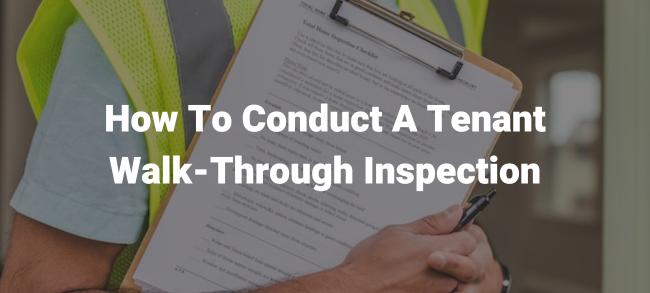How to Transition from Part-Time to Full-Time Landlord

If you've been a part-time landlord for a while, making it your full-time job may seem daunting. Taking on more responsibility and tackling new challenges can be intimidating, but becoming a full-time landlord offers many benefits like financial security, career stability, and personal satisfaction. If you already have some experience as a part-time landlord, transitioning to full-time is achievable! In this blog post, we at Advantage Realty Services will share what it takes to switch from part-time to full-time landlord!
Why Transitioning from Part-Time to Full-Time Landlord is a Good Idea
Transitioning from a part-time landlord to a full-time landlord is a good idea for the following reasons:
Increased Income Potential
Moving from part-time to full-time landlord can give you a significant boost in income. You can give your energy and most of your time to managing your rental properties, which means you can maximize profits.
Enhanced Control and Flexibility
Being a full-time landlord gives you greater control over the rental properties. Furthermore, you'll have the flexibility to make changes as you see fit to increase the value of your rental properties.
Improved Knowledge and Understanding
Becoming a full-time landlord will teach you more about the rental market. You'll be able to keep yourself up-to-date on the latest laws, regulations, and industry trends that can help you maximize profits.

Cut Cost
Being a full-time landlord also means that you'll be able to save on costs. You can benefit from tax deductions related to being a landlord, such as deductions for repairs and maintenance costs, utilities, and loan interest paid on your rental properties.
Tip for Transitioning from Part-Time to Full-Time Landlord
Here are some tips to help you success as a full-time landlord:
Develop A Business Plan
The most important step in transitioning from part-time to full-time landlord is to develop a business plan. A good business plan helps define the scope of your operations, budget accordingly, identify and address potential risks, and set realistic goals. The following are essential components you need to include in your business plan:
- Your goals and objectives
- Target markets
- Financial projections
- Strategies for acquiring new properties and managing existing ones
- Research local markets to identify suitable areas for investment
- Budgeting for each property (purchase or rent)
- Risk assessment and mitigation strategies
- Tracking system for monitoring progress and performance
By mapping out your action plan, you'll be better prepared to make sound decisions to help you achieve long-term success as a full-time landlord.
Build A Support Network
In addition to a business plan, you must build a support network. Start by connecting with experienced landlords who can provide valuable insights on rental property management and investing. You can also reach out to other real estate professionals in the industry who can offer advice on everything from finding tenants to navigating tenant disputes.

These experts will provide you with valuable information that can help streamline your transition into full-time landlord status. Use them as a resource to get advice and answers to your question and learn best practices.
Scale Up Your Property Portfolio
Once you've understood the rental market and the legal aspects of being a landlord, it's time to start looking for additional properties. There are numerous ways to expand your real estate portfolio. Whether investing in single-family homes, multi-unit apartments, vacation rentals, or commercial properties, your options for adding to your income stream are vast.
Whichever route you choose, keep an eye on potential investments and perform due diligence before purchasing. Consider the home's condition, local market trends, future development plans, and the neighborhood when evaluating a property. Additionally, be sure to factor in estimated repairs that may need to be completed before you can start renting out the property.
Save Up for Unexpected Expenses
Before relying solely on rental income, ensure you have enough savings and emergency funds to cover the mortgage payments on any rental properties you plan to invest in. Also, ensure you have a separate savings account for rental income to access it quickly.

Choose Your Tenant Wisely
Screenings are the best way to ensure you get reliable tenants. Do background checks, verify their references, and interview them. Before signing the rental agreement, you should also ask for a security deposit to cover damage or non-payment. Follow up with your tenants and enforce the rules outlined in the lease. Ensure they meet all their obligations, such as paying rent and maintaining the property.
Expand Your Knowledge
Take some time to research your local rental laws and familiarize yourself with tenants' rights. By having plenty of knowledge about being a landlord, you can make smart decisions and comply with all relevant laws. You should also look into ways to keep up with current trends in the industry. Knowing the rental market will help you set rent prices competitively, ensuring that quality tenants always occupy your property.
Hire Property Management Company
If you don't have the expertise to be a landlord or want to dedicate more of your energies elsewhere, it might make sense to hire a property management company. Landlords can benefit from a proficient property management company that can assist in managing various aspects of their rental properties, such as tenant selection, rent collection, and repairs.
Bottom Line
Transitioning from a part-time to a full-time landlord may be challenging, but it’s a worthwhile endeavour. Embrace the possibilities, seize the opportunities, and unlock the potential for financial and personal fulfillment as you embark on becoming a successful full-time landlord.
Contact Advantage Realty Services now and make your transition from part-time to full-time landlord a seamless and rewarding experience. Our experts are here to support you every step of the way!








